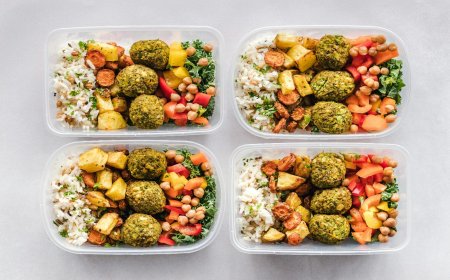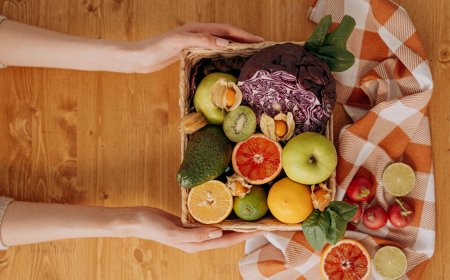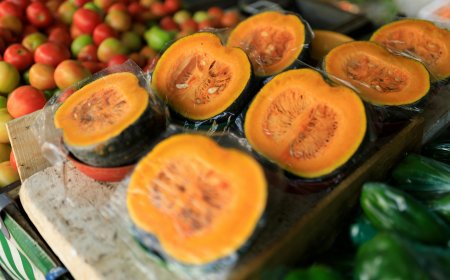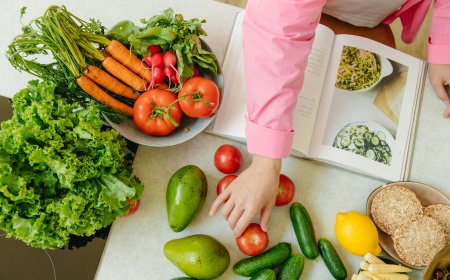How to Eat More Eco-Friendly in 2025
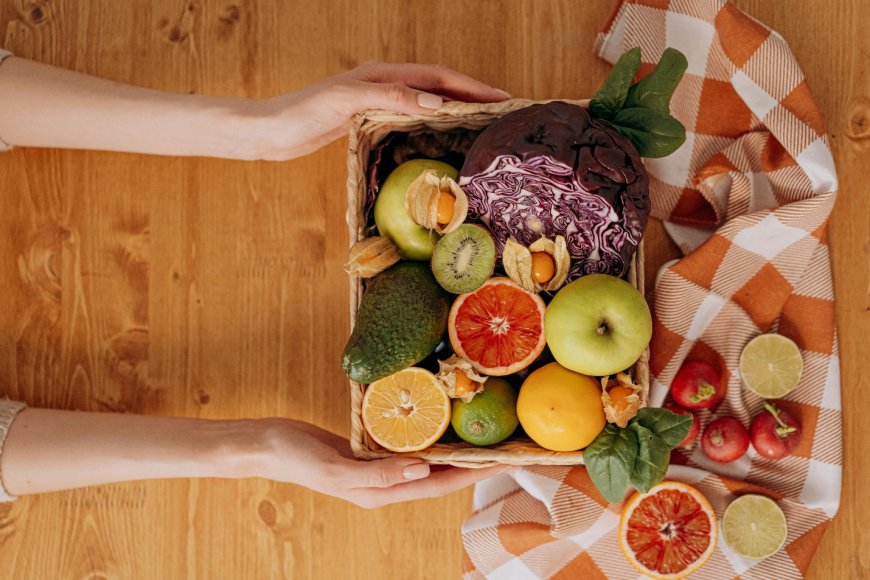
Diets have a significant effect on the surroundings, affecting everything including water use and greenhouse gas emissions as well as biodiversity reduction. Sustainable eating practices become more critical than ever as the world population rises and food consumption rises. Choosing environmentally friendly foods guarantees a better environment for the next generation, not only about personal health. Understanding the environmental effects of our diets and choosing more sustainable substitutes can help us to contribute to a more balanced and stronger food system.
The Environmental Impact on Our Food Choices
Among the main causes of environmental harm is food production. With cattle farming alone accountable for a sizable share of the roughly 30% of world greenhouse gas emissions, it helps to explain for example, whereas fertilizers used in crop cultivation emit nitrous oxide, cattle generate methane—a strong greenhouse gas—during digestion. These gases taken together rapidly accelerate climate change.
Apart from pollution, food production causes deforestation since agricultural land is created from the clearing of forests. This not only compromises the capacity of the earth to absorb carbon dioxide but also damages habitats for animals. Furthermore, industrial agricultural methods sometimes rob the soil of nutrients and poll water supplies with pesticide and fertilizer chemical runoff.
Another crucial problem is water use. About 70% of the freshwater consumed worldwide comes from agriculture; water-intensive crops like rice and almonds severely tax already limited resources.
Food waste aggravates these issues meantime. All the resources used to create food—land, water, energy—are squandered when it is thrown away. Moreover, as food waste breaks down in landfills, methane is produced, hence increasing greenhouse gas emissions.
Why Sustainable Eating Matters
Mindful decisions made in sustainable eating help to minimize environmental damage while advancing social and economic justice. It's about realizing that the condition of the earth influences our diets and acting to lower our environmental impact. Changing our diets to be more sustainable can enable us to support biodiversity, slow down climate change, and protect natural resources.
Reducing our dependence on animal-based foods is one of the most powerful strategies for eating sustainably. Among the most resource-intensive parts of farming, meat, and dairy production call for large volumes of land, water, and feed. Turning to a diet heavy in plant-based foods can help to greatly reduce greenhouse gas emissions and save resources.
Selecting seasonal foods grown locally might also make a significant impact. Often referred to as "food miles," transporting food over great distances calls for a lot of energy for refrigeration and transportation. Purchasing seasonal locally grown food not only lowers these emissions but also helps nearby businesses and farmers.
Another vital component of sustainable eating is reducing food waste. When we toss food, we are wasting all the resources that went into making it, not only calories. Simple adjustments in meal planning, food storage, and imaginative use of leftovers can help greatly lower waste.
Shifting Toward Plant-Based Diets
Reducing meat and dairy product consumption is among the most important actions people can take towards sustainability. More than all kinds of transportation taken together, livestock production accounts for around 15% of world greenhouse gas emissions. It also calls for large volumes of land; in fact, grazing or growing feed crops for livestock uses around 80% of agricultural land used worldwide.
Not only are plant-based diets better for the environment but they also have several health advantages. Rich in nutrients yet having a far smaller environmental impact than animal products include foods like beans, lentils, almonds, and whole grains. Little adjustments like substituting chicken for beef or adding vegetarian meals to your weekly diet can make a big difference.
Those who find it difficult to give up meat completely have several options for making slow changes. You may start, for instance, by committing one day a week to plant-based meals during " Meatless Mondays." Without feeling deprived, you could find it simpler over time to include more plant-based choices into your diet.
Supporting Local and Seasonal Foods
The idea of "food miles" emphasizes the environmental impact connected with the route food takes from farm to plate. Many imported commodities need refrigeration and great shipping, which greatly adds to carbon emissions. Choosing locally grown food will help you to lower these emissions while still enjoying better ingredients.
This strategy is complemented by seasonal eating, which emphasizes foods that your area naturally offers at particular times of year. Generally speaking, seasonal produce is more sustainable since it calls for less artificial inputs like cold storage facilities or greenhouses with high energy demand.
Farmers' markets or community-supported agriculture (CSA) projects also assist local businesses using supporting local farmers, therefore promoting a closer relationship between consumers and their suppliers.
Tackling Food Waste
Although it is a sometimes disregarded factor for climate change, food waste is nevertheless one of the easiest problems for each person to solve. Given the environmental cost of growing that food, the shocking figure of one-third of all food produced worldwide is wasted annually.
Lowering food waste begins with awareness. Meal planning ahead of time will enable you to prevent impulse purchases that can go unneeded and buy only what you need. Good storage methods—such as freezing leftovers or keeping fruits and vegetables in ventilated bags—can help perishable goods last longer.
Furthermore helping to reduce waste is creative cooking. If cooking isn't possible, for instance, vegetable wastes might be composted to benefit soil or made into savory broths. Stale bread should be used instead of thrown away as croutons or breadcrumbs.
Supporting Sustainable Farming Practices
Sustainable agriculture provides actions that preserve natural resources priority, creating wholesome food for communities. Organic farming substitutes natural alternatives that support soil health and biodiversity for synthetic fertilizers and pesticides. By emphasizing techniques like crop rotation and cover cropping to rebuild ecosystems, regenerative agriculture advances yet more.
Search for certifications like USDA Organic or Fair Trade labels that show ecologically responsible manufacturing methods when grocery shopping. A key component of sustainability that goes beyond environmental issues, is fair salaries, and working conditions for farmers are also usually guaranteed by these certifications.
The Role of Innovation in Sustainable Eating
While personal behavior is important, a more sustainable food system is created in great part by technological developments. By creating meat without growing animals—a method that takes substantially less resources and generates greatly less pollution—innovations like lab-grown meat present exciting substitutes for conventional cattle farming.
Another fascinating invention allowing crops to be produced indoors under regulated conditions is vertical farming, whereby stacked layers are While allowing year-round production near metropolitan centers, this approach requires less land and water than conventional farming.
But technology by itself cannot address the problems our food system faces; equally vital is group action. We can bring about long-lasting, more general change by supporting laws that support sustainable agriculture and lower food waste at a structural level.
A Call to Action
Healthy dining is about progress rather than perfection. Over time, each little action you do toward choosing environmentally responsible solutions accumulates. Your choices count whether it's substituting a plant-based dinner for one meat-based one each week or helping nearby farms by purchasing seasonal vegetables from your neighborhood market.
Though it starts with awareness, the path toward sustainability blossoms with behavior. Reevaluating our connection with food and adopting behaviors that give people and the environment priority can help us create a future in which everyone has access to wholesome meals without endangering resources on Earth.
Sustainable eating is ultimately about more than simply what's on your plate—it's about bringing harmony between people and the environment such that both may flourish together for the next generations.
What's Your Reaction?
 Like
0
Like
0
 Dislike
0
Dislike
0
 Love
0
Love
0
 Funny
0
Funny
0
 Angry
0
Angry
0
 Sad
0
Sad
0
 Wow
0
Wow
0


